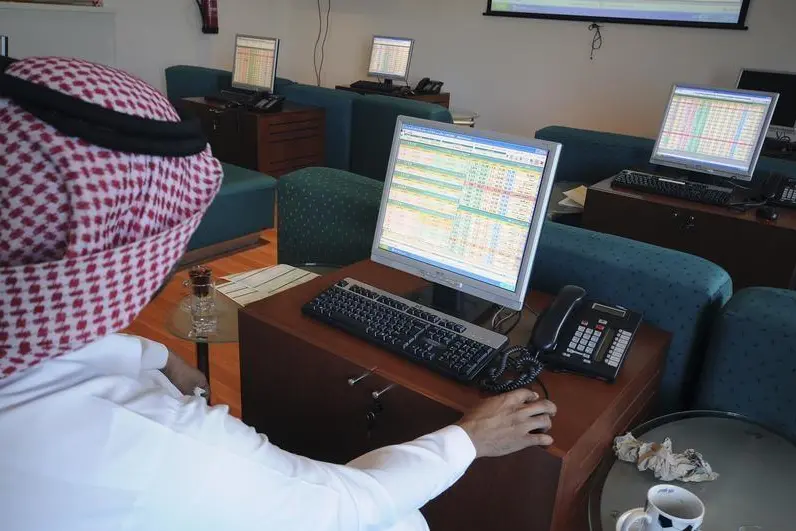PHOTO
LONDON - Bankers are discussing a potential jumbo financing of up to US$70bn to back oil giant Saudi Aramco’s acquisition of a majority stake in Saudi Arabia Basic Industries Corp (Sabic).
Aramco is aiming to buy a controlling stake in petrochemical outfit Sabic, and could buy all of the 70% stake owned by the Public Investment Fund, Saudi Arabia's top sovereign wealth fund.
Riyadh-listed Sabic, the world's fourth-biggest petrochemicals company, has a market capitalisation of SR385.2bn (US$103bn) and a 70% stake would cost roughly US$70bn.
JP Morgan and Morgan Stanley have been picked to advise on the deal, Reuters reported.
Bankers are having internal discussions about Aramco’s potential need for external debt financing, which could be loans or bonds. Aramco has not yet sent a request for proposals to its lenders, sources said.
“Nothing has happened yet but all banks are looking at it,” one banker said.
The possibility and size of a potential debt deal depends whether vendor PIF will require certainty of funds for the acquisition, which could mean that Aramco has to raise cash upfront, rather than paying over a longer period.
“Aramco may need to raise some upfront cash which might be paid in a number of agreed instalments and might include a bridge loan,” the banker said.
Getting information on a potential deal could be difficult, however, as negotiations will be led from the top by Saudi Arabia’s reforming crown prince, Mohammed bin Salman.
“We would like to get out and meet people to discuss this but I don’t think anyone will be knowledgeable enough. This is being led from the top by the crown prince, I don’t think people at the Aramco level even know what is going on,” he said.
Aramco declined to comment.
LENDERS KEEN
A large potential debt financing could boost Middle Eastern lending, which sank to only US$4.4bn in the second quarter - the lowest quarterly total since the second quarter of 2004 - and would attract appetite from local and international banks.
In early 2016, the crown prince said that he planned to sell shares in Aramco in an IPO planned for 2018, which was aiming to raise more than US$100bn for a new sovereign wealth fund.
The IPO has been delayed until at least 2019, which means that Aramco’s relationship banks will be expected to provide any financing for the Sabic purchase at very low rates to land a role in the potential IPO.
“The US investment banks, all three Japanese banks, all the French banks, some of the German banks and a lot of Middle East banks, including the Saudi banks, will be willing to lend as much as possible,” a second banker said.
Banks that are unlikely to be involved in the potential IPO would be less keen to lend at low rates, as banks' return on capital remains under pressure.
“If there is a deal it will be extremely cheap – double digit pricing. We wouldn’t get any ancillary business so why would we lend so cheaply” a third banker said.
The acquisition of the Sabic stake could also impact the timing of Aramco's planned IPO, the state oil giant's chief executive, Amin Nasser, said earlier this month and could even remove the need to do the IPO.
PIF could receive up to US$70bn from the Sabic sale, which would give sufficient funds to embark on ambitious infrastructure and development projects planned for the Kingdom.
SABIC REFINANCING
Sabic, which is rated A1/A-/A+, said in May that it expected to refinance nearly US$2bn of external debt by October. A potential change of ownership is unlikely to alter these plans, bankers said.
The company has a US$1bn bond which is due to mature on October 3 and has hired banks for an international bond offering. The timing and terms of the issue have yet to be decided.
Sabic also had a US$1bn term loan that matured on July 18, and expects to use drawings on its existing US$2bn revolving credit facility to repay that loan until the US$2bn refinancing is completed. Discussions are currently underway, bankers said.
“We are discussing various things with Sabic, something may come. It has not been really agreed what purpose the money will be used for,” a fourth banker said.
The term loan was originally agreed in 2013 via a club syndicate and paid 50bp over Libor. The five-year revolving credit was put in place in December 2015 and pays 25bp over Libor.
(Editing by Tessa Walsh) ((Sandrine.Bradley@thomsonreuters.com; +44 207 542 0651 ; Reuters Messaging: Sandrine.bradley.com@reuters.net ))





















